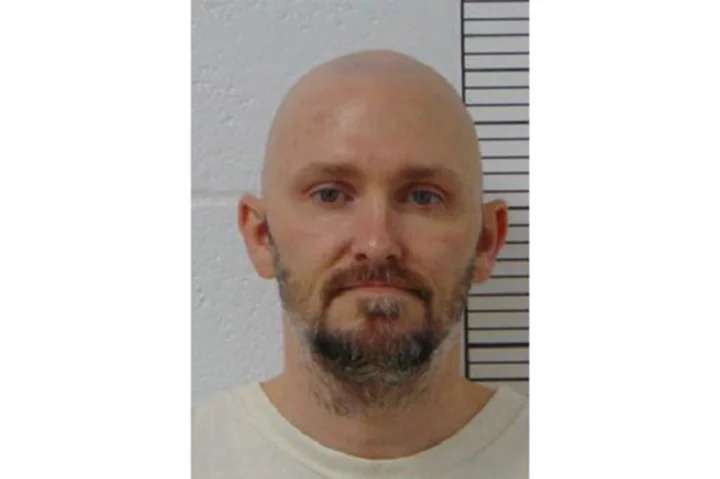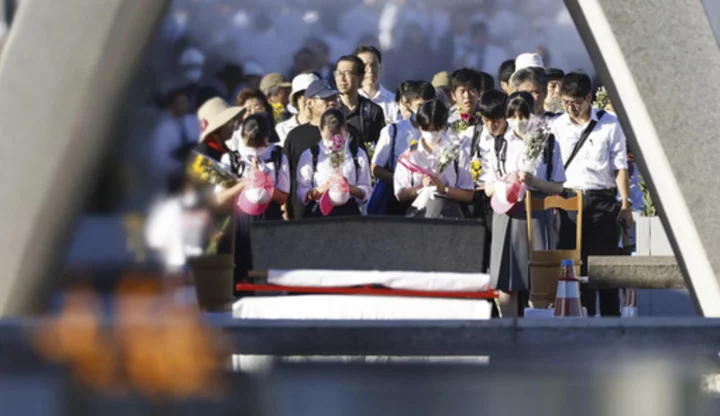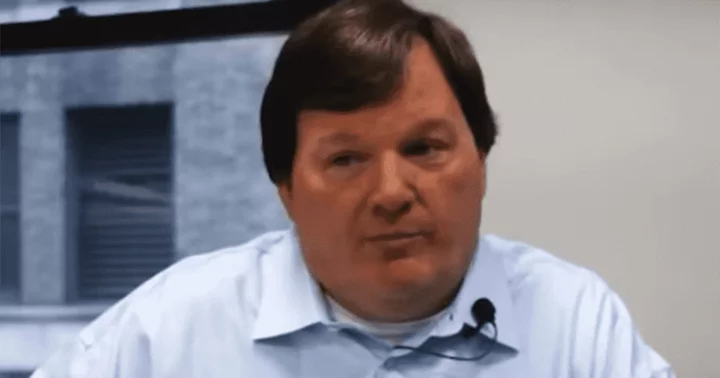Hundreds more wounded and foreign passport holders hoped to escape the war-torn Gaza Strip on Thursday as Israeli forces bombed and fought intense ground battles with Hamas militants in the besieged Palestinian territory.
Ambulances were set to rush several dozen patients to Egyptian hospitals, and about 400 foreigners or dual nationals were expected to escape as the southern Rafah crossing was due to open for a second day, said border officials on both sides.
A blast hit the town of Rafah early Thursday, rattling strained nerves as families were lining up, desperate to escape through Gaza's only exit not controlled by Israel.
Egypt said that eventually it hoped to help evacuate 7,000 foreigners from more than 60 countries from the densely crowded territory of 2.4 million people that has endured weeks of sustained bombardment.
Heavy ground battles flared again overnight in northern Gaza as Israel has sought to destroy Hamas over the bloody October 7 attacks, the worst in the country's 75-year-history, which it says claimed 1,400 lives.
The Israeli army, which is also seeking to free around 240 hostages, said it had killed "dozens" of enemy forces as "terrorist cells in the northern Gaza Strip fired anti-tank missiles, detonated explosive devices and hurled grenades".
"The soldiers engaged with the terrorists, with the assistance of artillery fire and tanks, while directing an aerial strike from a helicopter and a missile strike from a naval boat."
Some 332 soldiers have died since October 7, most in the Hamas attacks, Israel says, and gruelling urban warfare lies ahead as its forces advance deeper into Gaza, where Hamas is fighting from a tunnel network spanning hundreds of kilometres (miles).
Global concern has risen sharply over Israel's heavy retaliation -- including strikes on more than 11,000 targets so far, according to the army. The Hamas-run Gaza health ministry says 8,796 people have died, mostly women and children.
The UN's top human rights body Wednesday decried "the high number of civilian casualties" and the massive scale of destruction and voiced "serious concerns that these are disproportionate attacks that could amount to war crimes".
- 'Whole families killed' -
Although the United States backs Israel in ruling out a ceasefire now, President Joe Biden said he would support a humanitarian "pause" to help get the hostages out of Gaza.
The long-blockaded coastal strip has been under a total Israeli siege that has cut off water, food, electricity, fuel and medical supplies.
A total of 227 aid trucks have so far entered under a US-brokered deal, according to the UN humanitarian agency OCHA, an amount aid groups say falls far short of meeting the desperate need.
Special concern has focused on repeated heavy strikes on Gaza's largest refugee camp -- densely populated Jabalia, north of Gaza City -- where explosions brought down residential buildings and left giant craters on Tuesday and Wednesday.
Gaza's Hamas-ruled government said 195 were killed in Israeli strikes on Jabalia, a figure AFP could not independently verify.
AFP has witnessed hundreds of rescuers desperately clawing through the rubble and twisted metal in frantic attempts to bring out survivors and extract bodies, with emergency responders saying "whole families" had died.
The wounded were rushed away by cart, motorcycle and ambulance as anguished wails and blaring sirens filled the dusty air.
But Gaza's hospitals have been overwhelmed and run short of medical supplies and even electricity. More than 20,000 people in Gaza are wounded, says aid group Doctors Without Borders.
Israel has argued it is trying to avoid civilian casualties and has told residents to evacuate northern Gaza. It also says that Hamas has blocked many civilians from leaving and used them as "human shields".
- 'Death every day' -
While the United States and other Western powers have largely backed Israel, anger has flared across the Arab and Muslim world against Israel and its allies.
Jordan recalled its ambassador to Israel "to condemn the Israeli war that is killing innocent people in Gaza".
Israel has come under attack from Iran-backed enemy forces in several countries including Hezbollah in neighbouring Lebanon and Huthi rebels in distant Yemen.
With fears mounting that the war could spread, Biden called for "urgent mechanisms" to dial down tensions and said top diplomat Antony Blinken would embark on another Middle East tour from Friday.
With a propaganda war raging alongside the conflict, the Israeli army has sought to show the world that Jabalia was a legitimate military target.
Officials said Tuesday's strike killed Hamas battalion commander Ibrahim Biari and destroyed a key underground tunnel complex.
Biari was not "just another terrorist", said military spokesman Richard Hecht, but rather a "high-value target" who deployed Hamas militants during the October 7 attacks and had since "overseen Hamas' battle efforts in northern Gaza".
"Our war is not with the people of Gaza," Hecht insisted. "The Palestinian people deserve peace and safety. Instead they are exploited as shields."
Hamas said seven of the estimated 242 hostages it is holding, including three foreign passport holders, died in Tuesday's bombing, a claim that was impossible to verify.
The group's leader Ismail Haniyeh accused Israel of committing "barbaric massacres against unarmed civilians".
While millions remain trapped in Gaza, hopes have risen for more foreigners to leave under deals brokered with US, Egyptian and Qatari mediation.
The Rafah crossing on Wednesday opened for the first time for evacuees.
Egypt said 46 wounded and sick and 30 people accompanying them had crossed along with 361 foreigners or dual nationals -- among them Austrians, Australians, French, Italian, German and US citizens according to those governments.
For those left behind, the wait for safety goes on.
"There is no hope in the Gaza Strip," said Amen al-Aqluk, who fled Gaza City under Israeli orders but remains stuck in the territory.
"We encounter death every day, 24 hours a day."
burs-jd/fz/









